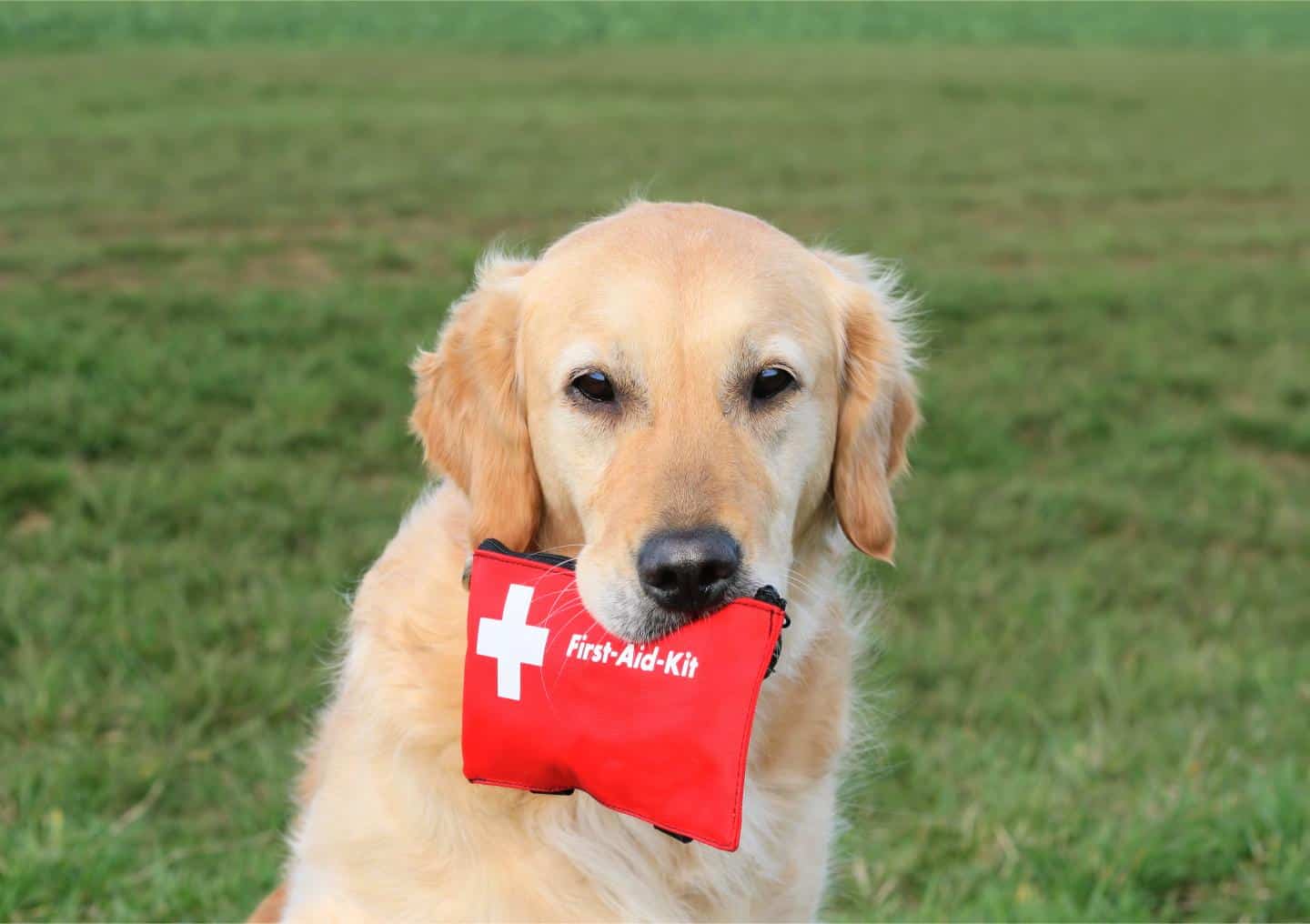First-Aid Tips Every Pet Owner Should Know

Most pet owners know that a sudden accidental injury is always lurking around the corner. It’s just a fact that comes with the territory of responsible pet ownership. Minor pet injuries can be treated at home with a high level of efficacy, but it does take some confidence and know-how. It is also equally important to know when a pet’s condition requires emergency care instead of home care. We aim to empower pet owners to learn the basics of pet first aid, and refine their understanding of what constitutes emergency treatment.
Reading the Room
Any changes to a pet’s behavior signal the need for close observation, reflection, and assessment. Having a baseline of your pet’s normal behavior can help clue you into the fact that’s something amiss.
A pet in need of first aid may hide or withdraw from the household. Other troubling signs include:
- Increased vocalization like crying, howling, whining, or growling
- Increased panting
- Pacing or restlessness
- Excessive or uncharacteristic drooling
- Breathing difficulties
- Mobility challenges such as limping, favoring a leg, or reluctance to move
- Bleeding
It can be hard to know when to act at home or transport your pet for a ride to the emergency room. If you ever have questions about your pet’s health, please call us at (916) 349-2755.
Immediate Intervention
Putting together a pet first-aid kit is essential and should always include the following supplies organized in a waterproof container:
- Gloves
- Gauze squares and rolls in various sizes
- Hydrogen peroxide
- Rubbing alcohol
- Antibiotic ointment
- Antiseptic towelettes
- Non-stick stretchy tape
- Small scissors
- Sterile pads
- Tweezers
- Styptic powder to control bleeding
- Towel or blanket
- Muzzle
- Instant cold packs
- Pillowcases (for cats)
- Non-slip leashes
Inside the kit, you should have copies of your pet’s medical history and a list of emergency hospitals nearby. The Pet Poison Helpline (800-213-6680) is a good resource if you know or suspect your pet ate something dangerous.
Careful Handling
When a pet is ill or injured, it is critical to hold them in ways that don’t exacerbate their pain and other symptoms. Likewise, careful handling techniques can minimize their stress and anxiety. Never put yourself in a situation that endangers you or a family member. Sick or injured pets can act defensively and may lunge, growl, hiss, bite, or scratch even the ones they love the most.
When to Seek Help
If you see any of the following symptoms, your pet is in need of immediate emergency care:
- Prolonged vomiting or diarrhea
- Compromised breathing or choking
- Seizures
- Uncontrollable bleeding
- Major traumatic injury (from a fall or vehicle collision)
- Loss of consciousness
Emergency Funds
Unexpected pet emergencies can lead to unexpected financial obligations. Having a bit of savings or pet insurance can make a big difference in how you can support your pet during a medical procedure or treatment. Trupanion is an excellent pet insurance option that we can process most transactions at our hospital for various situations. Should you be interested in learning more about pet insurance, please don’t hesitate to call us
Our team at Cherry Creek Veterinary Hospital is always here to help your pet. Even in the absence of obvious symptoms, your intuition may tell you that your pet isn’t feeling well. In this case, we encourage you to schedule an appointment. It’s always a good thing to be protective of your pet’s health, safety and well-being.
